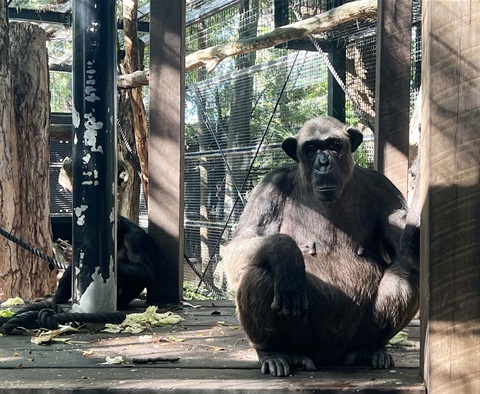Koala Conservation Efforts in Australia Show Promise Amidst Habitat Loss
This article discusses the ongoing crisis facing koalas in Australia due to habitat loss and the conservation efforts led by Linda Sparrow to restore their habitat and ensure their survival.
Koalas are facing a crisis in Australia. Since European colonisation, their habitat has been devastated, with approximately 29 million hectares (54 per cent) of forests and woodlands destroyed in NSW alone.
Even in recent years, deforestation has continued at an alarming pace. In 2020, 53,800 hectares of vital koala habitat were lost to logging and development.
With the Northern Rivers region bearing the brunt of this destruction, the future of Australia's arguably most iconic animal seems uncertain. Yet amid this bleak reality, hope is sprouting -- thanks to passionate conservationists like Linda Sparrow.
As president of Bangalow Koalas, Sparrow is leading efforts to reverse the damage. In collaboration with local volunteers and organisations like WWF, she has spearheaded the replanting of 413,000 trees across 115 properties in the region (through 155 plantings), creating a critical lifeline for koalas.
Speaking to Yahoo News, Sparrow said her ultimate goal is to establish a "koala wildlife corridor" -- an interconnected network of habitats where koalas can roam freely and safely, far from the threat of humans.
And Sparrow is well on her way to achieving the lofty goal.
"The world is watching us," she told Yahoo News Australia. "I can't imagine a world where there's no koalas. We have to step up and we have to protect them, because by protecting koalas -- we're actually helping all of us."
Koalas are a vital part of the Australian ecosystem. They help maintain the health of eucalyptus forests by feeding on specific trees, promoting natural forest regeneration. By protecting koalas and their habitats, we are also ensuring that these ecosystems thrive, supporting other species and maintaining a balance in the food chain.
Koala habitats, like the forests and woodlands they live in, play a key role in carbon storage. By protecting these forests, we're helping mitigate climate change by maintaining natural carbon sinks, which absorb carbon dioxide from the atmosphere. Healthy forests help regulate temperatures, improve air quality, and reduce the risk of extreme weather events.
Sparrow lives in Bangalow and it's where a lot of her work is focussed. But just north across the Queensland border, she's recently seen enormous success in just a couple of years.
Sharing incredible pictures, she explained what was once a bare, steep paddock in the middle of a macadamia plantation now flourishes as genuine koala habitat, after 1,600 trees were planted in 2020.
"There were three different koalas using those trees (when the area was last monitored) -- they're definitely using the trees. There's scratches, there's scat, broken branches, there's all sorts of evidence," she said.
"And those trees aren't even two years old, but the more you put in the ground, the more chance koalas have got. We can't keep up with the rate of logging going on in state forests and all the trees that are indiscriminately being cut down.
"Because you can rescue and rehabilitate koalas all you like, but if there's no habitat for them, then there's no hope."
Sparrow now hopes to plant another 500,000 trees by the end of 2025 - and it's not only koalas that stand to benefit. "We're planting for a whole host of other native species. There's many, so many, animals and birds and insects that benefit from what we're doing."
Sparrow's work is made possible thanks to collaborations with WWF-Australia Koalas Forever, with trees funded by One Tree Planted as well as the NSW Department of Climate Change, Energy, the Environment and Water.
Anybody who wishes to donate to the efforts can do so here. Sparrow added that people are more than welcome to join the efforts on the ground, too.
By preserving koalas, Sparrow said, we're not just saving a single species -- we're protecting entire ecosystems that support our climate, water resources, economy, and health. It's a win for the environment, wildlife, and us.













